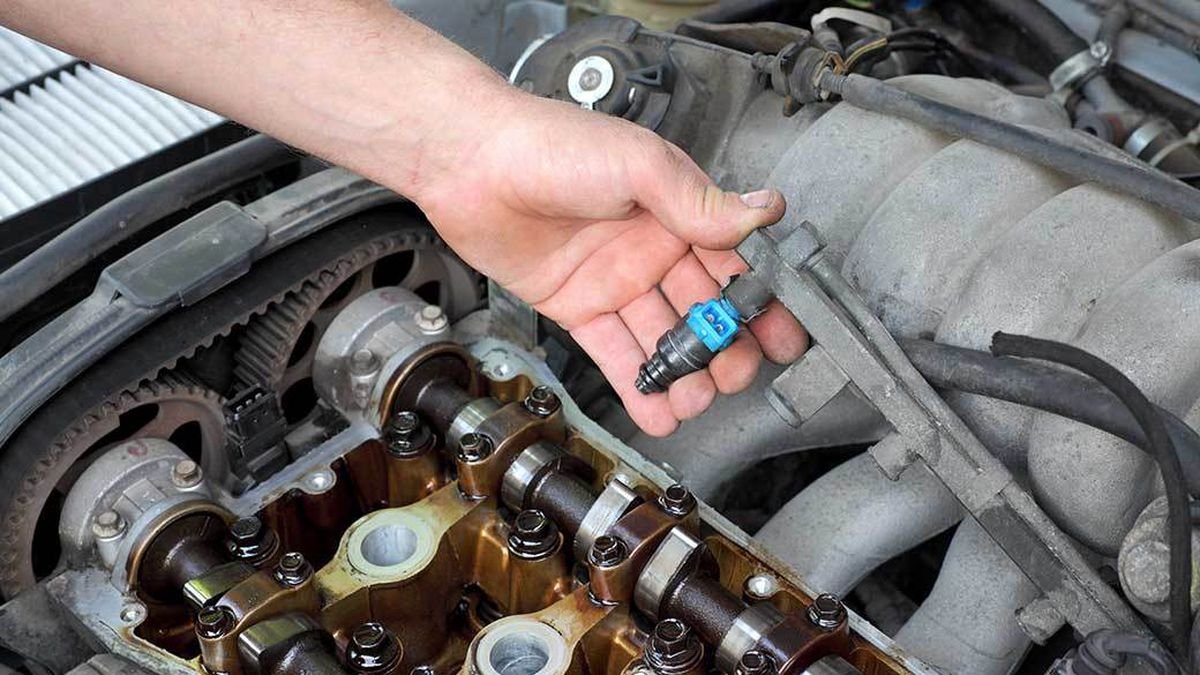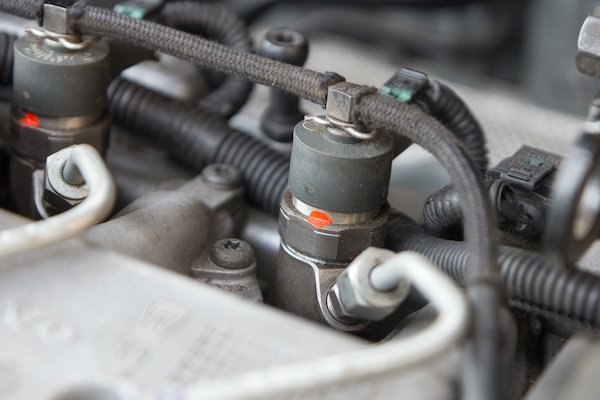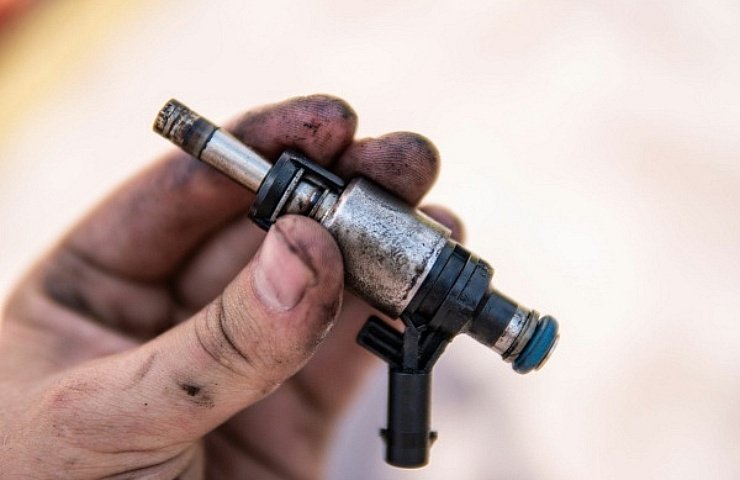
An essential part of a car’s fuel system is a fuel injector. This has a major impact on your engine’s longevity, fuel efficiency, and performance. But a lot of car owners don’t pay attention to the fuel injector until it breaks and causes issues. Engine damage, decreased engine performance, and reduced fuel efficiency can all be caused by a faulty fuel injector.
In this article, we will discuss the importance and multiple signs of faulty fuel injectors. Let’s study this subject and learn the truth.
What is a Fuel Injector?
A fuel injector is a vital component of a vehicle’s fuel system. Its main function is to deliver fuel into the engine’s combustion chamber in a fine mist spray, allowing for efficient burning and power generation. Essentially, it ensures that the right amount of fuel is mixed with air for optimal engine performance.
Importance Of Fuel Injector
The importance of a fuel injector stems from its function as an integral part of an automobile’s engine system. Fuel injectors provide efficient combustion, maximum engine performance, and fuel economy by precisely injecting gasoline into the combustion chamber as a fine mist. As a result, engines run more smoothly, emissions are reduced, and overall vehicle performance increases. Simply put, fuel injectors are essential to maintaining the longevity, performance, and condition of the engine in a vehicle.

Signs Of Faulty Fuel Injector
Engine Misfires
One common side effect of faulty injectors is engine misfires. If the car doesn’t accelerate when you step on the accelerator, your fuel injectors may be worn out and need to be replaced. Engine misfires occur when there is a brief loss of power to the engine, usually as a result of an uneven fuel supply. When you try to accelerate, the off-center air/fuel mixture causes a slight loss of power that can cause your car to shake uncomfortably and feel strange.
Engine misfires are simple to identify when your gasoline is not delivered, mixed, or timed properly. Rather than replacing your fuel injectors, you might be able to solve this issue by cleaning them. Replacing the fuel injectors, however, might be the best course of action if the issue continues or reappears sooner than expected.
Decreased Fuel Efficiency
If your engine is having trouble distributing fuel efficiently, you will naturally experience a decrease in fuel economy. Injector problems or blockages often indicate high fuel consumption. It’s a good idea to keep track of your mileage and fuel consumption because poor fuel economy can lead to unnecessary costs of time and money at the gas station. If you seem to be filling up more often than usual you should check your injectors for a problem.
Rough Idling
Your car’s failure to start or idle could indicate that your fuel injectors are faulty. Fuel injector failure might cause your car to become completely unusable. This occurs when the engine is unable to receive the proper fuel from the injectors. Therefore, it’s crucial to have your car checked out by a professional if you discover that it is having problems starting or if it appears like it is.
Engine Stalling
A dirty fuel injector is one of several possible causes of a flashing or illuminated check engine light on your dashboard that requires immediate attention. A dirty or damaged fuel injector can deliver too little or too much fuel to the engine, which will explain why the check engine light is on.
As a result, both engine performance and fuel efficiency will be affected.
If you experience any of these symptoms or suspect a faulty fuel injection system, it’s important to take the car to a professional for diagnosis and repair. Repairing or diagnosing a faulty fuel injector on your own can be dangerous and could result in additional damage to the car.
Correct diagnosis and treatment of the problem by a qualified mechanic will guarantee the performance and safety of your car.
Steps To Proceed If a Faulty Fuel Injector
1. Diagnostic Tests
While the engine is running, press the end of a long metal screwdriver against the fuel injector. Bend your ear over the handle of the screwdriver. A good injector is indicated by a clicking sound. If you don’t hear anything, the injectors may need to be cleaned or replaced. Make an appointment with a professional mechanic for a diagnostic test to identify the source of the problem. They can test them with special equipment.
2. Repair or Replacement Options
Your mechanic may recommend replacing or repairing the faulty fuel injector depending on the amount of damage. They can offer you options that suit your needs for the vehicle and your budget.
3. Maintenance Tips
This includes checking the fuel pressure regulator, looking for damage or blockages in the fuel filter, and checking the fuel injectors for blockages or leaks. Also, the idle control valve and throttle body should be cleaned, and any cracked or broken parts should be replaced.

Drive With a Bad Fuel Injector Is It Safe?
It is possible, but not recommended, to operate the vehicle temporarily with fuel injectors running. In addition to endangering the safety and security of your vehicle, this may also be against the law in your area.
While they may provide some short-term relief, temporary fixes like fuel additives or injector cleaners are not long-term solutions. Ignoring the issue may cause more harm and expensive fixes.
Conclusion:
In conclusion, it is not advisable to drive a vehicle with a bad fuel injector as it leads to various expensive problems with the engines. If you suspect a fuel injector problem, get yourself to a professional mechanic so they can be fixed right away and ensure your vehicle stays in top condition.
Frequently Asked Questions:
1. How long can you drive with a bad injector?
A malfunctioning fuel injector can give you at least 5,000 miles or more of driving. But since a damaged fuel injector can harm other components of the fuel system, you should avoid driving when it’s broken.
2. What happens if you don’t fix a fuel injector?
Catalytic converter damage might result from a faulty injector that continuously leaks too much fuel. The unburned fuel may catch fire if it gets inside the catalyst.
3. Can injectors suddenly fail?
Fuel contamination is the most common cause of early failure, while several other factors can also contribute to failure. Fuel contamination occurs when gasoline particles pass through the filter and damage the sealing surfaces.
4. Can a faulty fuel injector damage the engine?
Yes, a faulty fuel injector can potentially damage other engine components if left unaddressed. It’s essential to address the issue promptly to prevent further damage.
Related articles:
